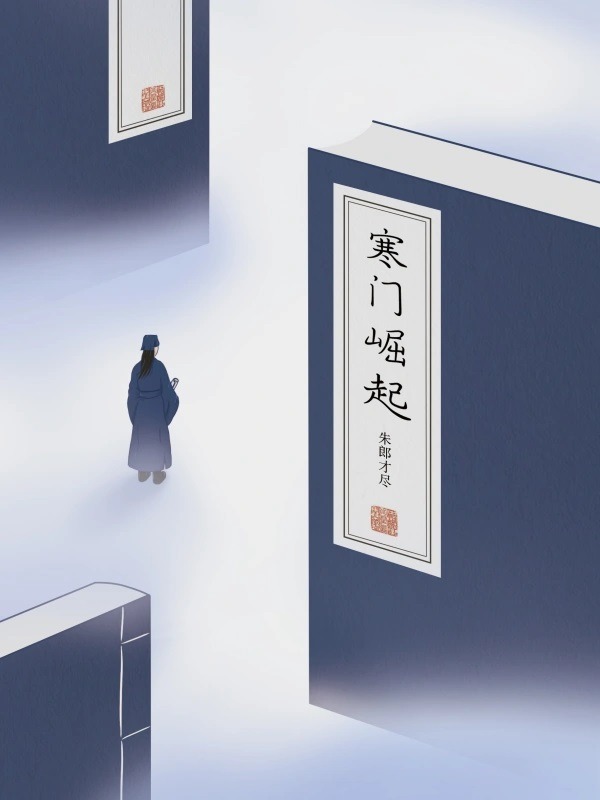
Kays Translations
Just another Isekai Lover~
Chapter 278: Impartiality and Sincerity
When Zhu Ping’an and the others were taking the second exam, the examiners had also begun to get busy.
In fact, after the first exam ended, around five or six o’clock in the afternoon the next day, the first batch of one hundred sealed metropolitan exam answer sheets had already been delivered to the examiners. Following that, more than five thousand sealed answer sheets arrived. On the sealed envelopes of the answer sheets, there were different markings: “South,” “North,” and “Central.”
This was the Ming Dynasty’s pioneering system of regional division in the metropolitan exams. After the confusing “South-North List” case during the 30th year of the Hongwu era was settled, the examination system of “dividing the list by region” was formally established. Over time, it continued to be refined. By the middle of the Ming Dynasty, it had evolved into a three-list division: “Southern List,” “Northern List,” and “Central List” (which included Anhui and the southwestern provinces). The quota for admissions was fixed at 55% for the Southern List, 35% for the Northern List, and 10% for the Central List.
While Zhu Ping’an and the others were taking the second exam, the examiners had already started grading the papers.
The grading took place at the “Hall of Ultimate Fairness” (Zhigong Hall) within the Shuntian Examination Hall. Zhigong Hall was located behind the Mingyuan Building, with the east and west sides designated as the outer curtain area for administrative staff. Behind Zhigong Hall was the inner curtain area, where the examiners resided and graded papers.
Outside the main entrance of Zhigong Hall, there was a couplet meant to highlight the difficulty of the exam for candidates, and to emphasize the impartial insight of the examiners and the absolute fairness in selecting officials—only by doing so could the country recruit true talent and convince candidates of the fairness of the process:
“Three years of toil lead to this place; all aspire to succeed. If not guided by utmost fairness, the chosen rejoice while the overlooked hold resentment, leading to slander.”
“A lifetime’s hope rests in this hall; strive for discernment beyond the masses. Only with utmost caution will the selected rejoice, and the unchosen feel no shame—praise will follow.”
Inside Zhigong Hall, after the first exam answer sheets had arrived, the chief examiner Xu Jie, together with deputy examiner Yan Maoqing and eight co-examiners, entered the inner hall of Zhigong Hall, beneath a portrait of Confucius. There, the two main examiners stepped forward to burn three sticks of incense, then knelt three times and bowed nine times in a grand ritual under the portrait of the sage.
Xu Jie led the way, followed closely by Yan Maoqing. The remaining co-examiners followed in order according to rank.
“For the sake of the nation’s governance, we vow to select talents impartially, not favoring personal relations, not accepting bribes, and should we betray this oath, may the gods punish us.”
Xu Jie led the examiners in a collective oath. This had been an unchanging ritual for hundreds of years. After the oath, the two main examiners withdrew. Then, staff from the examination hall busied themselves with rituals—offering sacrifices to Wenchang Dijun (God of Literature), saluting Kui Xing, inviting the spirit of Lord Guan, and so on. All the procedures were strictly carried out according to precedent.
Once the rituals were completed, they began drawing lots. First, Chief Examiner Xu Jie and Deputy Examiner Yan Maoqing drew lots. The chief examiner drew lots for room assignments, and the deputy examiner drew lots for bundles of exam papers. Based on the result, bundles of exam papers were assigned to specific exam rooms for grading.
Each examiner received about 500 answer sheets, which included test papers from the “South,” “North,” and “Central” regions. Papers were selected for recommendation based on the established proportions: 55% from the South, 35% from the North, and 10% from the Central region.
“Gentlemen, even if I don’t say it, you should all understand the importance of this year’s metropolitan exam. His Majesty’s attention to this exam has been clear for all to see. The topic for the second session was His Majesty’s own decree. Therefore, we must take our oath to heart…”
As Xu Jie spoke, he swept his gaze across all the examiners. The usually smiling and easy-going Xu Jie was now uncharacteristically stern.
“Otherwise, you may find your lives and families in jeopardy! His Majesty does not tolerate even a grain of sand in his eyes! Enough—this official trusts that all of you are fair and just people. Let the paper grading begin.”
With that, Xu Jie waved his hand, signaling the official start of grading for this session of the metropolitan exam.
Grading for the metropolitan exam was similar to the provincial exam. The grading examiners in each room had no final decision-making power. Their job was only to identify and mark the exam papers they believed to be excellent, and recommend them to the chief examiner—a process called “recommendation,” colloquially known as “leaving the room.” Particularly outstanding papers received a “high recommendation.” Papers that were not recommended were called “rejected papers.” Even for these, the examiners had to write comments explaining why they were not recommended.
Once a paper was recommended, its chances of passing rose to around 50-60%. If the deputy examiner also liked the paper, he would mark it with the word “select.” This increased the chance of success to 80-90%. If the chief examiner also approved and marked it with the word “pass,” then the paper had gone through all the procedures and the candidate had officially passed—congratulations!
The grading period for the metropolitan exam was about twelve days. In that short time, each examiner had to review over 500 papers. Across three sessions, the total reached about 1,500 papers per examiner. In such a short time, it was almost impossible to read all the exam answers in detail. Therefore, over time, the focus had shifted to only the first session’s answers—specifically the required Four Books essay. Other sections received much less attention.
Of course, this time was an exception. They also had to pay special attention to the second exam, since it was based on an imperial poetic edict personally issued by the Jiajing Emperor.
While the examiners were busy grading the first session, the second exam had already ended. Only the final session of the metropolitan exam remained.
The final exam questions were handed out as the examinees eagerly awaited them. Fortunately, the last exam did not include any strange surprises like the second one had. It followed traditional form and tested five questions on the classics and history.
The five questions in this round were straightforward and uncontroversial. After racking their brains to write a poetic edict in the previous round, the candidates were relieved to finally answer questions in a familiar, structured format.
Zhu Ping’an was no exception. The only difference was that he wore a mask, and he possessed a historical perspective hundreds of years ahead of the other candidates. This gave him a significant advantage when tackling the classics and history questions. The higher your vantage point, the farther you can see; and the farther you can see, the more advantages you have.
As Zhu Ping’an focused on completing the final exam, three large ships were traveling down the Grand Canal, arriving at the port of Tianjin, which was known for its grain transport and commerce.
“Miss, where are we? Why are there so many ships? Wow, that one is huge!”
A little round-faced maid appeared on the high pavilion of one of the ships. She looked at the rows of ships stretching for miles at Tianjin port, her little mouth forming an astonished pout.
“You’ve never seen the world. That’s a sea ship. This is Tianjin Guard. All grain transport ships from around the country heading to the capital must pass through here.”
Another stunningly beautiful young lady appeared on the pavilion, holding a book. She gently tapped the little maid’s forehead and playfully scolded her.
“Tianjin? That means we’re almost in the capital, right? Miss, I wonder if the young master has finished his exam yet…”
The little maid held her head with her chubby hand, her big round eyes sparkling.
“Who has time to care about that toad?”
The beautiful young lady curled her cherry lips in disdain and said angrily. Then, she closed her book with her delicate hand and walked down from the pavilion.
Inside the book was a charm of literary inspiration, carefully hidden, with one corner peeking out.
